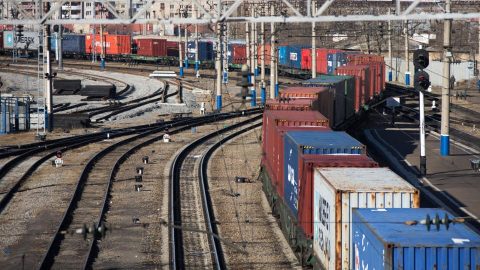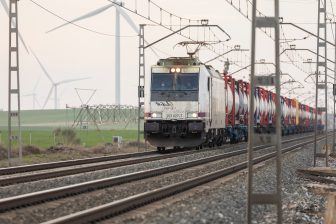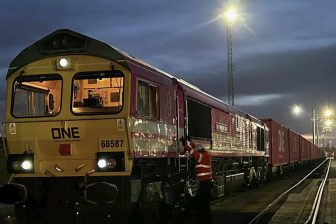
From Beijing to Moscow in 2018
Cargo in postal trains, e-commerce services and new routes to China and Europe marked the year of 2018 for RZD Logistics, subsidiary of Russian Railways. These developments are all in line with the aim of Russia to increase its transit shipments fourfold by 2024.
“RZD Logistics concentrated on the development of complex services, which included not only shipment itself, but also terminal and customs services, and first and last mile transportation”, commented Olga Stepanova, Sales Director of the Russian company.
E-commerce
One of the most noteworthy new services launched this year by the company was Rail Jet, which promises the delivery of e-commerce goods from Beijing to Moscow in six days. For this, the operator uses baggage rail cars of passenger trains. The service was established as a regular connection in October, while the first test ride took place in June this year.
“RZD Logistics realises this project in cooperation with JSC Federal Passenger Company and China’s leading cargo consolidator SF Express. So far, 18 test shipments were organised” Stepanova noted.
Digitalisation
In 2018, RZD Logistics also significantly increased the number of oversize cargo shipments from China to Russia for large-scale Russian industrial enterprises, she continued. “This trend will definitely remain in 2019, as railway transportation guarantees safety of expensive equipment and short delivery time.
“The year 2018 was mainly dedicated to the digitalisation of logistics processes, along with the synchronisation of logistics activity with the Federal Customs Service. This trend will prevail in 2019, with digitalisation and new services playing a crucial role in the transit volume increase.”
New transit routes
The year 2018 marked several new transit routes through the Russian territory. A regular train connecting Changsha in China and Tilburg in the Netherlands was launched in August. Another new service connected Hunan province to Minsk via Zabaykalsk. “We have also actively developed export and import shipments. For instance, RZD Logistics launched a Chengdu-Vorotynsk line for the transportation of Volvo cars and a Suzhou-Selyatino line”, Stepanova noted.
A multimodal service was launched connecting Japan and Russia in August. The first trial took off from the Port of Kobe (Japan) to the Port of Vostochny (Primorskiy Krai, Russia). Here, the container was placed on a platform and loaded onto an accelerated container train, set to hit the Trans-Siberian railway. Several test rides have been carried out and the data is currently being studied. Russian Railways and the Ministry of transport of Japan have committed to increasing the volumes on this route, which until recently was rarely used.
Outlook for 2019
Our strategic goal for 2019 is further improvement of current logistics services and the launch of new ones, as well as the development of complex logistics, said Stepanova. “The importance of our company’s activity is aimed at the development of cooperation between Russia and Europe, as well as with the Asian-Pacific Region. RZD Logistics will work closely together with its partners on new services and higher speed of delivery.”
RZD Logistics is planning to start off the next year with the launch of a first train across the newly developed route via the port Bronka. This service was introduced to Chinese partners during the international conference in Saint-Petersburg and aims to carry containers from China to the Northern European countries such as Denmark, Sweden, Norway, Finland, Germany as well as the Netherlands and Belgium.





